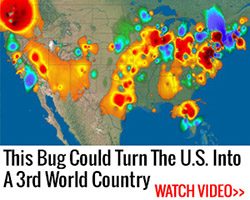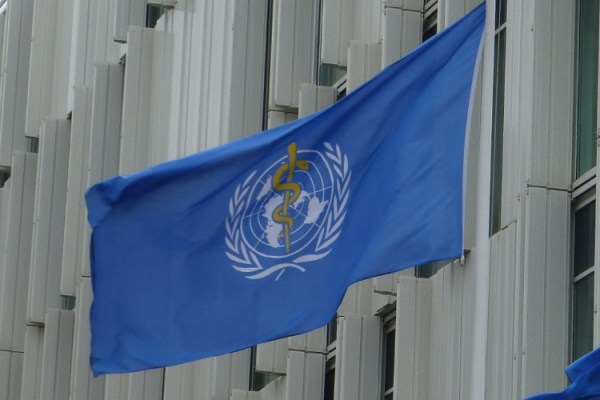(1/30/2020) The World Health Organization has finally declared a global emergency over the spread of the coronavirus that originated in Wuhan, China.

At the time of publication, the coronavirus has infected people in 18 countries:
- Australia – 7
- Cambodia – 1
- Canada – 3
- China – 7711
- France – 5
- Finland – 1
- Germany – 4
- India – 1
- Japan – 11
- Malaysia – 8
- Nepal – 1
- Philippines – 1
- Singapore – 10
- South Korea – 6
- Sri Lanka – 1
- Taiwan – 8
- Thailand – 14
- United States of America – 6
- United Arab Emirates – 4
- Vietnam – 4
It’s important to note that many believe the numbers coming from China are inaccurate.
The AP reports:
Experts say there is significant evidence the virus is spreading among people in China and have noted with concern instances in other countries — including the United States, France, Japan, Germany, Canada and Vietnam — where there have also been isolated cases of human-to-human transmission.
Speaking to reporters in Geneva, WHO director-general Tedros Adhanom Ghebreyesus noted the worrisome spread of the virus between people outside China.
The main reason for this declaration is not because of what is happening in China but because of what is happening in other countries, he said. “”Our greatest concern is the potential for this virus to spread to countries with weaker health systems which are ill-prepared to deal with it.”
“This declaration is not a vote of non-confidence in China…on the contrary, WHO continues to have the confidence in China’s capacity to control the outbreak,” he said.
On Thursday, France confirmed that a doctor who was in contact with a patient with the new virus later became infected himself. The doctor is now being treated in an isolated room at a Paris hospital. Outbreak specialists worry that the spread of new viruses from patients to health workers can signal the virus is becoming adapted to human transmission.
A declaration of a global emergency typically brings greater money and resources, but may also prompt nervous governments to restrict travel and trade to affected countries. The announcement also imposes more disease reporting requirements on countries. (source)
The global emergency declaration could come with greater travel restrictions, more extensive disease reporting requirements, and more money and resources contributed to the fight.
You should get prepared just in case the situation continues to devolve.
While the declaration should serve as a warning to get prepared just in case, it’s important to note that other declarations have not resulted in an epic disaster.
The last time WHO declared a global health emergency was in 2019 for the Ebola outbreak in eastern Congo that killed more than 2,000 people. The agency also declared global emergencies for the 2016 Zika virus, the 2009 H1N1 swine flu, and the 2014 polio and Ebola outbreaks. (source)
This is not to say that the current outbreak isn’t serious – it is – but it’s still possible that the world’s medical community will get things under control before havoc is wrought outside of the hot zone. Meanwhile, it’s important to understand how the virus spreads, to learn about personal protection equipment, and to fill in any gaps in your preps.
Why did the WHO declare an emergency?
Last week, the World Health Organization declined to declare an emergency. So what changed?
One of the criteria used to determine whether the coronavirus is an international health threat is whether the disease spreads locally once it arrives in new parts of the world, “and that’s a nuanced and important distinction to make,” Dr. Mike Ryan, executive director of the WHO’s health emergencies program, told reporters on a call last week.
The other main criteria is whether it’s already interfered or will likely interfere with trade and travel, he said. The WHO committee’s goal, he said, is to contain an outbreak without needlessly disrupting economic activity just by declaring a global health crisis. (source)
This is your early warning.
If you don’t take this opportunity to get prepped, you may find that supplies are no longer available – or if they are, prices could increase dramatically – if the situation worsens here at home.
Lawrence Gostin, a professor and faculty director of the O’Neill Institute for National and Global Health Law at Georgetown University, said. “It signals that the world must be on the alert for a major event.” (source)
As scary as a lot of people find this situation, I urge you not to panic. Here are all of our resources to help you get better prepared.
- What I Bought to Prep for a Wuhan Coronavirus Lockdown
- PPE for a Pandemic: A Guide to Personal Protective Equipment and Masks
- Coronavirus Special Report: “Epidemics” Become More Deadly When Living Standards Are Lower
- Wuhan Coronavirus Hits the US: What Preppers Need to Know
- The Numbers for the Wuhan Coronavirus Outbreak Just Don’t Add Up
- 20 Million People QUARANTINED in China for Wuhan Coronavirus: What to Do RIGHT NOW
- What We Can Learn 100 Years After the Spanish Influenza Pandemic of 1918
- These Infectious Diseases From Animals Are Serious Health Threats
- Are You Prepped for a Pandemic?
- Here’s How Easily an Epidemic Like Ebola Can Turn Into a Pandemic
Panic is the enemy of preparedness. Focus on what you need to add to your stockpile and plan how you intend to handle it if the pandemic continues to multiply.
source : Daisy Luther




